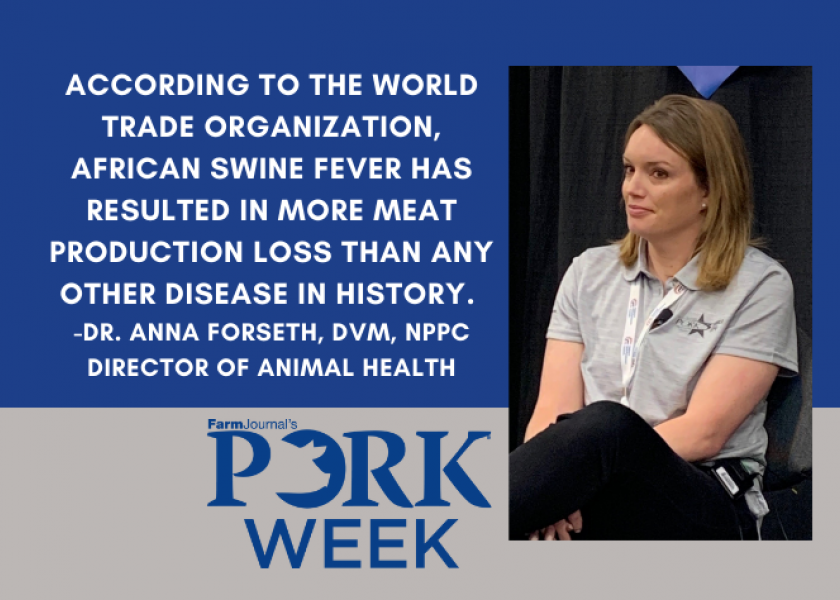Getting Ahead of an FAD Outbreak

Walking on pins and needles. That’s what U.S. pork producers are doing, because there’s no way to anticipate when or if a foreign animal disease (FAD) will enter the country. If that were to happen, everything would change so producers are learning to prepare. A presentation at the 2022 World Pork Expo gave producers an opportunity to learn about industry collaboration and coordination for FAD prevention, preparedness and response. Because, as Iowa pork producer and moderator Heidi Vittetoe pointed out, it makes more sense to change behaviors during peacetime than after a war (like a foreign animal disease) starts.
During the session, Dr. Anna Forseth, DVM, director of animal health for the National Pork Producers Council talked about just how close African swine fever (ASF) is to the continental U.S. and the economic fallout that would ensue.
Too Close for Comfort
“According to the World Trade Organization, ASF has resulted in more meat production loss than any other disease in history,” she said. “In July of last year, we knew ASF was getting close to the U.S. border,” she said, noting that it has been diagnosed in Haiti and the Dominican Republic (DR).
Progress in the DR has been faster than in Haiti, due to political unrest, poor infrastructure and other challenges in Haiti. Working with other countries is a lesson in diplomacy, she explained, adding, “We have to understand these are sovereign countries and we need to be invited to assist.”
Testing for ASF in the DR began in 2019, Forseth said. Officials collected samples from feral pigs, which were sent to Plum Island. When ASF virus was first discovered, difficulties included:
• No or limited movement controls
• Lack of communication/delayed response to calls
• Limited resources
• No enforced regulation against garbage feeding
USDA Actions
The U.S. industry will benefit from the work in the DR. USDA staff are helping with incident command, developing surveillance and response plans and troubleshooting lab equipment. They are also training lab technicians and making improvements to facilities, including construction, Forseth said.
Puerto Rico and the U.S. Virgin Islands are also top-of-mind for USDA, since they are U.S. territories. The focus is on improving diagnostic laboratories, increasing inspections of legal and illegal boat traffic and increasing inspection of licensed garbage feeders.
“There are 105 of these premises and domestic swine are being tested at these establishments,” Forseth reported. In addition, feral swine surveillance and removal has been stepped up.
Step Forward
As Vittetoe pointed out, awareness and preparation are the first steps to combatting an FAD, and being able to prepare before a disease enters the country is pivotal to avoiding pitfalls.







